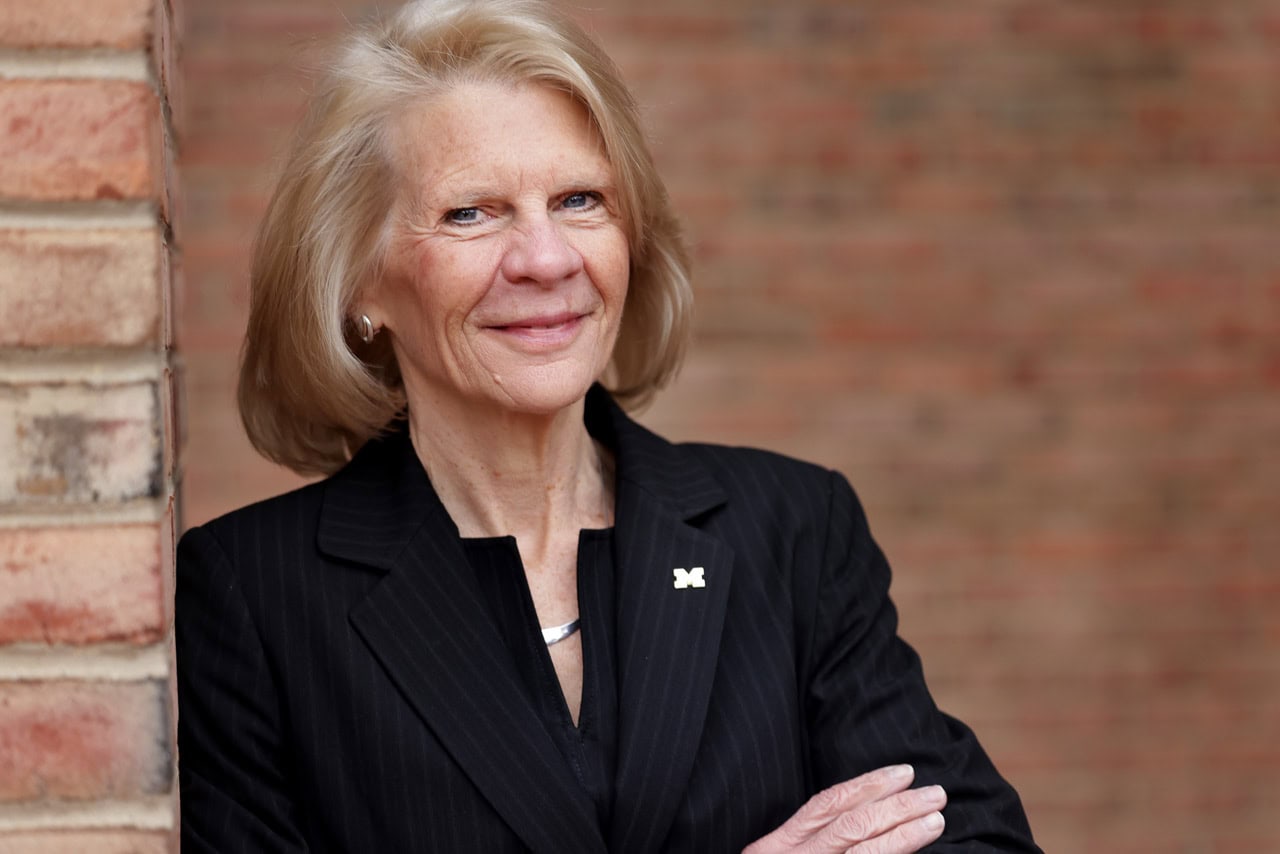
Get to know Dean Thole
In her first Q&A since becoming dean, Karen A. Thole discusses her background, research interests, what attracted her to Michigan Engineering.

In her first Q&A since becoming dean, Karen A. Thole discusses her background, research interests, what attracted her to Michigan Engineering.
Karen A. Thole joined the University of Michigan as the Robert J. Vlasic Dean of Engineering on August 1, 2024. Previously, Thole (pronounced “toe-lee”) served as a Distinguished Professor and department head in the Department of Mechanical Engineering at Pennsylvania State University and director of the Steady Thermal Aero Research Turbine (START) Lab. She also founded the Engineering Ambassadors Network, an organization focused on mentoring and developing future leaders in engineering and STEM for generations to come.
We spoke with Thole about her background and what she’s excited about as she joins Michigan Engineering.
I grew up on a farm in southern Illinois, in a town of fewer than a thousand people. As a farmer, my father instilled in me a strong work ethic and a fascination with how things worked. On Sunday afternoons, he would drive our family to an airport in St. Louis, about 50 miles away, to watch the planes take off and land, and his fascination quickly became mine. Fast-forward to my first semester of college, after a recommendation from a friend that I become an engineer, I called McDonnell Douglas (now Boeing) in St. Louis to ask “if they had any engineers working there.” After some laughter, the operator put me through to one of their engineers, who answered my question about what an engineer’s typical day was like. I learned there was no “typical” day—they were called upon to solve a host of different problems—and it was then that I decided to pursue engineering.
My research is about developing sustainable solutions for aircraft propulsion and power generation. I’m primarily an experimentalist and I do a lot of work on improving the efficiency of turbines and making sure they last a long time. For that to occur, you need to apply sophisticated strategies to cool the turbine parts because the temperatures of the gasses in the engine are already hundreds of degrees hotter than the melting temperatures of the turbine components. And this goes along the lines of developing things like hybrid electric propulsion systems that have the potential to enable, for example, flying an EV through the sky.
Throughout my career, I’ve known of the outstanding reputation of engineering graduates from Michigan. Michigan Engineering alumni are leading and starting companies, working in federal and state agencies and laboratories, and are successful academics and researchers throughout the world—which is a result of their excellent academic preparation. What attracted me most, however, was Michigan’s breadth and depth of research expertise, both within the College and throughout the University, with a constant effort to build a culture where everyone has the opportunity to succeed.
The health, quality and safety of our daily lives depend on engineers who work to improve everything from effective medical devices, to AI applications, to sustainable energy solutions that minimize impacts to our environment. I’m excited to work within the College and across the U-M community to facilitate and promote interdisciplinary approaches, using the People-First Engineering framework to enable Michigan’s diverse and talented community of faculty, staff, students and alumni to continue to find solutions to the challenging problems that our world faces.
The importance of our alumni’s help and engagement cannot be overstated. Alumni serve as critical ambassadors for us in their organizations. They help inform us by reaching back and letting us know of opportunities. And, most importantly, they serve as role models and mentors for our students. The incredible generosity of our alumni, whether it be their time or support, is an important dimension to our success as a College and our ability to educate the next generation of engineers.
Likewise, as an alma mater, we work to make a continued impact on our alumni through lifelong learning and professional education opportunities, career resources, volunteer programs, and in-person and virtual ways to connect with fellow alums.
I’ve always held the belief that listening and hard work are key to getting things right. As a student and even as a new engineer, I often applied these tenets while focusing on my individual contributions to a solution. But over time, it became apparent to me that the team matters as much as the engineering problem itself. Whether it be a research project, academic program, industry partnership or another area of work or service, bringing together a team with a diversity of backgrounds, thoughts and disciplines is required to achieve excellence. Now more than ever, we need highly skilled engineers who can work collaboratively with other fields to not only solve the challenges of today, but to make the world a better place for generations to come—through the ideals of people-first engineering.
Thermodynamics, which was mostly derived from having an excellent teacher.
My high school chemistry teacher, Mr. John Fenoli—he made science accessible and interesting. He also showed confidence in me.
Being outside doing anything: hiking (most favorite), walking and even weeding the garden. I’m open to recommendations for new trails to explore with my husband, Michael Alley, and our two lively dogs, Paris and Prague.
Best advice was to seek a PhD degree, which came from my husband, my strongest supporter.
I’ve traveled to all 50 states.
Getting on the water. There aren’t many lakes in Pennsylvania, so I am really excited about exploring the many lakes in and around the state.